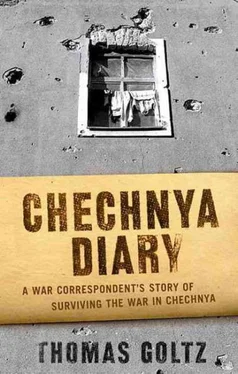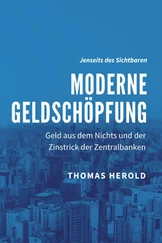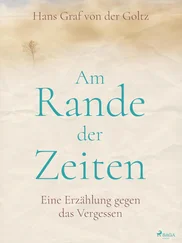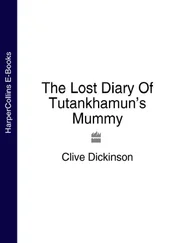The second thought mitigated the piety of the first: My success at sneaking into Russia at war was predicated on a level of corruption so far beyond anything I might have imagined, that logically I could not trust anyone, ever, anywhere. Not the border guards, not the taxi drivers—not even Isa. In a word, I was in way over my head and, no matter which way you pitched the equation, dependent on thieves. And someday I would have to rely on them to get back out the way I had come.
Bismillah.
Khazavyurt was a dirty little regional center in western Dagestan. But the majority of the population was ethnically Chechen, people with relatives across the frontier. With the start of hostilities in December, and especially during the siege and destruction of Grozny, it had become one of the two centers for displaced people, as well as a jumping-off place for press people trying to cover the conflict. The other was the tiny republic of Ingushetia to the west of Chechnya.
But while there were plenty of refugees camping in schools, homes, and doorways throughout the town, there was no trace of the Western press. My hack-pack pals seemed to have been forcibly cleared out some days before as part of a general informational crackdown. So, at three in the morning, Isa and I were obliged to wake up the guards at the Chechen nationalist headquarters and refugee meeting point and beg for a place to bed down for the remainder of the night. The room was cold and stunk of something. In the morning, we discovered ourselves to be in the sickbay. Behind the open bucket of water we had drunk from hung a sign that read: Cholera Warning!
Khazavyurt, as suggested, was a conduit in and out of Chechnya, and as such must or should have been ringed by KGB cameras and agents. Isa assumed so, anyway, and advised me to stick to myself while he went about making arrangements for our transfer across the frontier. This was frustrating, because the headquarters-refugee center and the street outside soon filled up with a mass of people. In any other circumstance I would have initiated conversations in order to cop a tearful tale to use in a generic refugee story. Instead, I was obliged to sit inside the building, acting like a refugee myself by studying the lists of names tacked up on the walls for missing loved ones, so saddened by loss that I spoke to no one for hours on end. For the first time I was made aware of the constraints imposed by my unorthodox mode of entry.
Toward noon a white sedan came roaring up to the building.
“Let’s go!” barked Isa in Russian, making no effort to maintain the fiction of my being anything other than a foreigner. “Get your stuff and be snappy. Some fink told the Russians about a suspected foreign spy around here, and that means you!”
We roared down a country lane that might have been regarded as pretty in better times, enjoying nothing and looking over our shoulders to see if we were being pursued.
“Toi matz!” cursed the driver in Russian, yanking the wheel and cutting down a tractor path. “They have pulled local security and replaced them all with Special Forces!”
The junction we had been heading toward was manned by large, fair-haired men in combat gear: Russians, and not Dagestanis. Happily, their attention was directed at traffic coming in the other direction, from Chechnya, and they did not seem to notice our detour. Bumping across the open field, we arrived at a farmhouse overlooking a derelict hydroelectric dam strung across the Akchay River. Access was restricted by lines of barbed wire. The ford was half a mile downstream, framed by a bridge that had buckled in the middle, blown either by the Russians as an act of nastiness or, more likely, destroyed by Chechen sabotage to prevent Russian armor from crossing.
“We’ll have to cross on foot,” said Isa.
A couple of youths were sitting on cement blocks on the far side of the dam. Seeing us, they almost snapped to attention—and then went into action.
“Wait until they give us the signal to cross,” said Isa, peering downstream toward the fording point. A line of cars and buses was strung out on the far bank, waiting their turn to be pulled across the river. In the middle of the stream, a tractor was pulling a flatbed truck piled high with mattresses, rugs, and the other household possessions of a group of new refugees who sat atop the precarious load, swaying as the vehicle dipped into and rose out of the deeper water troughs. When it arrived on our side, a dozen armed men surrounded the vehicle, and ordered the refugees down while they started an inspection.
“Now!” hissed Isa.
We speed-strolled down a cow path leading from the farmhouse to the river, coming even with the dam. In a move amazing for a man of his girth, Isa then ducked through a hole out in the barbwire fence and scuttled across. I was right behind him.
“In here!” cried one of the scouts, and we scurried into a small alcove cut in the bushes and small trees on the far side of the dam.
“Welcome to Chechnya,” said Isa with a smile.
2
A ROGUE REPUBLIC RECALLED
From a distance Chechnya may have appeared to be a land of noble warriors fighting an uphill battle over sacred ground against amazing odds. But closer historical inspection revealed the war as being part of a larger context—namely, the ethnonational policies that pertained in the seventy-year failed experiment called the Union of Soviet Socialist Republics.
The subject of the national structure of the defunct USSR was and is confusing to many outsiders. During the bad old days of the Cold War, the shorthand used to describe the main communist adversary of the United States was simply “Russia,” which by definition was a large country filled with enemy “Russians.”
The reality, of course, was somewhat different. Ideology aside, at the time of its demise the central government of the Soviet Union recognized no less than 128 discrete ethnic groups living in 53 state-like entities, ranging from the 15 Union Republics of the USSR (Armenia, Estonia, Kazakhstan, Tadjikistan, etc., etc.) to a hodgepodge of autonomous republics, autonomous regions, and autonomous districts within those same 15 “titular” republics. This setup, based on the concept of “national self-determination” accommodated the social, cultural, and political aspirations of all recognized ethnic majorities and minorities living in the lands of the Soviet state, and made the USSR unique from virtually every other sociopolitical experimental structure in the world. It was the theoretical opposite of the American “melting pot,” and might be best described as “the icebox,” a place where minute differences of linguistic dialect and national culture were to be frozen in time forever, enshrined as the ultimate in enlightened ethnic engineering.
In practice, however, the policy of polyethnic promotion left a lot to be desired. While most of the hundred-odd ethnic entities in the USSR enjoyed the accoutrements of self-government, they all lacked the substance of sovereignty. Most may have had something resembling a parliament, but all real decisions were made by the Central Committee of the Communist Party of the Union of Soviet Socialist Republics in the Kremlin in Moscow.
That all changed in the wake of the abortive putsch against Soviet President Mikhail Gorbachev of August 19, 1991. First, the fifteen Union Republics, including Russia itself, began issuing declarations of national sovereignty. But, no sooner had they done that than many of the two-score “autonomous” ethnic republics within the Union republics began clamoring for their right to become newly independent countries, too. Not to be left out, still smaller ethnic entities existing within the subrepublics or autonomous districts within the new titular states began clamoring for their own right to autonomy.
Читать дальше











